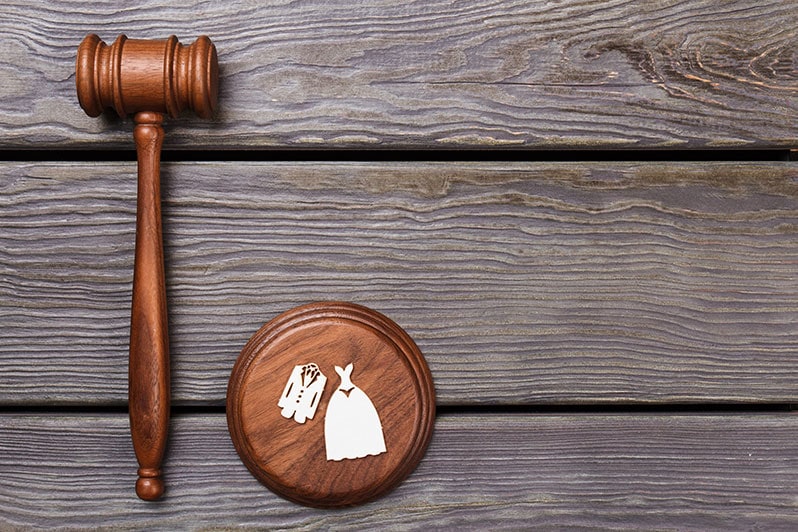The Risks and Consequences of Bigamy: Understanding the Impact on Your Family and Future
Disclaimer: This blog is not a substitute for legal advice but rather a guide. Call JJ Lawyers for a robust legal defence!
Bigamy is a criminal offence when a person marries another individual while still legally married to someone else. This act can result in serious legal consequences in family and criminal law. In this article, we provide the following:
- A comprehensive breakdown.
- Its legal ramifications in Australia.
- The importance of seeking advice from a family lawyer if you suspect that bigamy has occurred.
Understanding Bigamy
Definition of Bigamy
It occurs when a married person goes through a form or ceremony of marriage with another individual. This act is illegal in Australia, per the Marriage Act 1961 (Cth) & Section 92 of the New South Wales Crimes Act 1900.
Bigamy vs. Polygamy
While bigamous relationships involve a person entering a subsequent marriage without legally ending their first marriage, polygamy refers to having more than one spouse simultaneously. Polygamy is also illegal in Australia.
In other words, the terms often refer to different aspects of the practice. Specifically, polygamy is a more general term that refers to any situation in which a person has multiple spouses. Bigamy, on the other hand, is a more specific term that refers to marrying someone else while still legally marrying another person.
De Facto Relationships and Bigamy
De facto relationships are not considered bigamy, where a couple lives together and share a domestic life without marriage. However, suppose a person in a de facto relationship goes through a ceremony of marriage with someone else while still legally married. In that case, they have committed a bigamous relationship.

Legal Consequences of Bigamy in Australia
Family Law Implications
If a person has committed bigamy, the subsequent marriage is considered void. The innocent party in the subsequent marriage can apply for a decree of nullity, which declares that the marriage never legally existed. This process can be complex and may require the assistance of a family lawyers Sydney to navigate the legal system.
Criminal Offence under the Crimes Act
Exploring the Ramifications for Both the Offender and the Victim
Bigamy is a criminal offence under New South Wales Crimes Act 1900 (Section 92) and equivalent legislation in other states and territories. The severity of the penalty reflects the severe nature of the offence and its impact on the individuals involved. The maximum penalty is 5 years imprisonment.
Defences to Bigamy Charges
There are limited defences to bigamy charges, including the belief that the previous spouse had been dead for a specific period or that a divorce had been granted. Other defences include:
- If your spouse was absent for a significant amount of time and you had reason to believe they were dead, this could be seen as a case of presumption of death.
- If a spouse has been missing for 7 years before the act occurred. It’s essential to consult a criminal lawyer if you’re facing charges to explore potential defences and develop a strategy for your case.
Identifying and Addressing Bigamy
Importance of Accurate Marriage Records
Accurate marriage records are crucial for preventing bigamous relationships. The Marriage Act 1961 (CTH) requires that all marriages be registered, allowing authorities to verify individuals’ marital status before granting permission for a subsequent marriage.
Role of Marriage Celebrants
Marriage celebrants play an essential role in preventing bigamy. They are responsible for ensuring that the parties entering the marriage are legally free to do so. This process includes checking the parties’ identification, verifying that they are not currently married, and confirming that any previous marriages have been legally dissolved.
Investigating and Reporting Bigamy
How Reporting Suspected Cases Can Help Prevent Further Harm
If you suspect bigamy has occurred, gathering evidence and reporting the matter to the appropriate authorities is crucial. This may include providing documentation, such as marriage certificates, divorce papers, or evidence of ongoing relationships. Reporting a bigamous relationship can help protect innocent parties and ensure that individuals engaging in this criminal activity are held accountable.

Seeking Legal Advice from a Family Lawyer
If you suspect that a bigamous relationship has occurred or that your marriage may not be legal, it’s essential to seek advice from a family lawyer. They can help you understand the legal implications of your situation, guide you through applying for a decree of nullity if necessary, and provide representation in any legal proceedings.
If you have been charged with Bigamy, Contact JJ Lawyers For A Free Consultation – (02) 8005 3075
Preventing Bigamy
Understanding the Legal Requirements for Marriage
To prevent bigamy, it’s essential to understand the legal requirements for marriage in Australia. Before entering a new marriage, ensure that any previous marriages have been legally dissolved through divorce or annulment, and obtain the necessary documentation to prove the dissolution.
Open Communication with Your Partner
Open communication with your partner is vital in preventing a bigamous relationship. Discuss any previous marriages or relationships and ensure that both parties know each other’s marital history. This transparency can help avoid misunderstandings and potential legal issues.
Conducting Background Checks
While it may seem intrusive, conducting a background check on a potential spouse can help prevent bigamy. This may include verifying their marital status, checking for a history of divorce, or confirming the legitimacy of any provided documentation. Taking these precautions can help protect you from becoming an unwitting party to a bigamous relationship.
Parting Thoughts
Bigamous relationships are a serious criminal offence in Australia, carrying both family law and criminal law consequences. It involves a person entering a subsequent marriage while still legally married, which renders the next marriage void. The maximum penalty is 5 years imprisonment, emphasising the severity of the offence.
Accurate marriage records, the due diligence of marriage celebrants, and open communication between partners are crucial in preventing bigamy. If you suspect it has occurred or are facing charges, seeking advice from a family lawyer is essential to protect your rights and interests.
Understanding the legal implications and the importance of addressing them promptly can help individuals navigate the complexities of family law and criminal law in Australia.
By taking the necessary steps to ensure your marriage is legal and seeking assistance from a knowledgeable family lawyer if you encounter any issues related to a bigamous relationship, you can avoid the potential legal consequences and focus on building a strong, healthy, and legally recognised marital relationship.
Further Legal Dissections of Importance
For more pertinent legal breakdowns, see our dedicated law blog, where we tackle related Family Law, Criminal Law, Traffic Law & Civil Rights Law topics such as How Long Is A Life Sentence, Consent Orders, Are Abortions Legal In Australia?, What Is A Prenup? & More!




